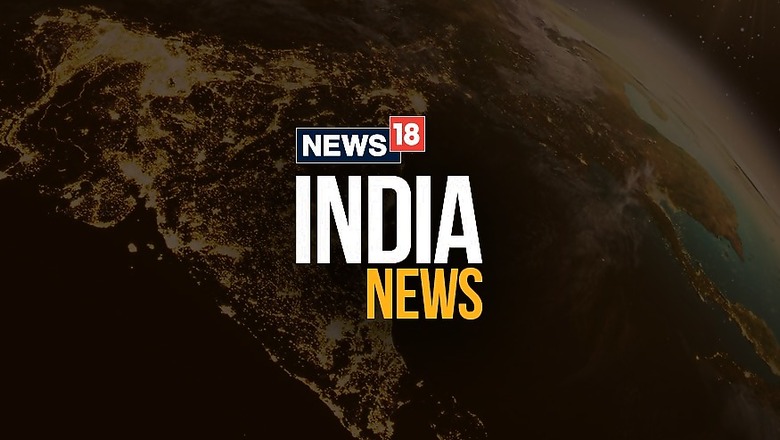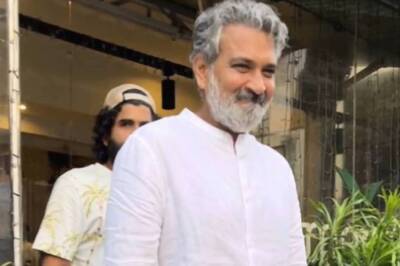
views
Johannesburg, Nov 27: The travel bans imposed on South Africa by a growing number of nations due to the new potentially highly-transmissible variant of COVID-19 in this country is draconian and misdirected, Health Minister Joe Phaahla has said. The new COVID-19 variant B.1.1.529, first detected in South Africa this week, was on Friday designated as a Variant of Concern by the World Health Organisation (WHO), which named it Omicron.
“We feel that it’s a wrong approach. It is misdirected and it goes against the norms as advised by the WHO. We just feel that some of the leaderships of (these) countries are finding scapegoats to deal with what is a worldwide problem,” Phaahla said at a news briefing late Friday evening. A variant of concern is the WHO’s top category of worrying COVID-19 variants. It was first reported to the WHO from South Africa on November 24, and has also been identified in Botswana, Belgium, Hong Kong and Israel.
“It is ironic that we are currently talking about a situation in South Africa today about small samples, (even though) we are concerned about rising numbers from the low levels of about 300 per day just over 14 days ago; to where we are now approaching 3,000 (cases),” Phaahla said. “It is a significant rise, but in comparison to some of the countries which are now reacting in this very draconian manner, we are talking about countries that have an infection rate of upwards of 40,000 new infections per day,” he said, contrasting the COVID-19 situation in Europe and his country.
“We don’t want to apportion blame, but just in terms of the way the virus moves as people move, it is not inconceivable that it might be possible that this may have even arisen in those countries which have been even more liberal in terms of crowds with no masks at stadiums and so on, the minister said, adding that the travel ban on South Africa are “unjustified”. Many parts of Europe and the US have opened up stadiums for crowds at sports matches and concerts.
Phaahla said he was aware that the announcement on Thursday by South African scientists about the discovery of the new variant had caused some consternation and uncertainty. This is expected in a situation of this nature, where we are dealing with a moving target, but we want to assure South Africans and people elsewhere in the world that we believe that some of the action has actually been unjustified, Phahhla said.
I’m referring here specifically to the countries in Europe.” All that we did together with our scientists who made the discovery of this variant was basically to be in line with the norms and standards as prescribed by the WHO – that as a world community as we deal with this pandemic and any other matter which challenges the world health as a whole, rather than just individual countries we should act with transparency, he said. The UK announced on Thursday that all flights to and from South Africa and five neighbouring countries would be banned from Friday following an announcement that the new Omicron variant of COVID-19 had been detected in South Africa.
Many other European countries followed suit, most of them indicating that only their own citizens would be allowed back, subject to a quarantine period. Foreign minister Naledi Pandor also slammed the UK’s for its decision, which was emulated by others, of imposing travel ban on South Africa.
Whilst we respect the right of all countries to take necessary precautionary measures to protect their citizens, we need to remember that this pandemic requires collaboration and sharing of expertise, she said. Our immediate concern is the damage that these restrictions are causing to families, the travel and tourism industries and businesses, Pandor added.
Along with South Africa, its neighbouring states — Botswana, Namibia, Mozambique, Zimbabwe, Lesotho, Eswatini, Malawi, Zambia and Angola — have also been slapped with travel bans, crippling their economies which are largely reliant on tourism. The Department of International Relations and Cooperation (DIRCO) in a statement urged world leaders not to implement knee-jerk policy decisions in response to the detection of the Omicron variant.
DIRCO said it noted that new variants have been detected in other countries as well and each of those cases had no recent links with Southern Africa. It’s worth noting that the reaction to those countries is starkly different to cases in Southern Africa…This latest round of travel bans is akin to punishing South Africa for its advanced genomic sequencing and the ability to detect new variants quicker. Excellent science should be applauded and not punished, it said.
DIRCO officials are in discussion with the countries that have banned travel to and from South Africa to dissuade them from continuing the restrictions. South African President Cyril Ramaphosa on Saturday convened a meeting with the country’s leading virologists and the Coronavirus Command Council. He is expected to address the nation on the current Covid situation on Sunday evening.
While some analysts expect him to announce a firming up of the current lowest Level One of a five-level lockdown strategy, others, including the business sector, have urged him not to move to a harsher level as it would cause even greater harm to the economy, which was just beginning to recover after a one-and-a-half year of lockdown. Phaahla said the scientists who are constantly monitoring the mutation of the virus informed the authorities so that the WHO and the health sector all over the world could also stay informed.
At no stage did (our scientists) say that they have evidence that this virus is more transmissible. They simply said that as has been the case with other mutations, some of them have had the effect of being more transmissible without also necessarily meaning that in terms of its seriousness (it would have) more impact on the severity of illness,” he said. The scientists did emphasise that these are very early stages in terms of the specifics of how this new variant is going to unfold, the minister said. Phaahla reiterated that there was no evidence that the current vaccines would be ineffective against the new mutation.
We want to dispel any notion, as has been bandied about by various commentators. At no stage did the scientists who discovered this variant say that (it) would be resistant to the vaccines which are being utilised, he emphasised. Earlier, South African Medical Research Council CEO Professor Glenda Gray came out in defence of the scientists who had flagged the new variant. Gray said releasing such information could assist in changing behaviour and result in reducing the spread of the virus.
“When you discover a new variant of concern or discover something that can have an impact on transmissions, it behoves you to alert the country. The scientists were doing their job. We don’t know how this new variant will impact us or on vaccine efficacy. If this alert makes people vaccinate, that’s a good thing, she told news24.com website. Gray opined that banning international travel was not an effective way of stopping the spread of new variants.
“I think that it’s hard to contain variants – we saw with the Delta variant. people recognised that a variant is present in the country it has probably already moved. I’m not convinced that restrictions on travel help. It didn’t help us with Delta, and I’m not sure it will help with this, she said. Dr Richard Lessells, an infectious diseases expert who is part of the KwaZulu-Natal Research and Innovation Sequencing Platform (KRISP) team, who along with Professor Tulio de Oliveira announced the detection of the new variant, said there was sufficient reason to be concerned, but work had already begun on answering important questions posed by the variant.
Lessells said Omicron was different from the Delta variant, first detected in India. Much of the science done to understand the Delta variant was done collaboratively around the world, he said.
Disclaimer: This post has been auto-published from an agency feed without any modifications to the text and has not been reviewed by an editor
Read all the Latest India News here


















Comments
0 comment